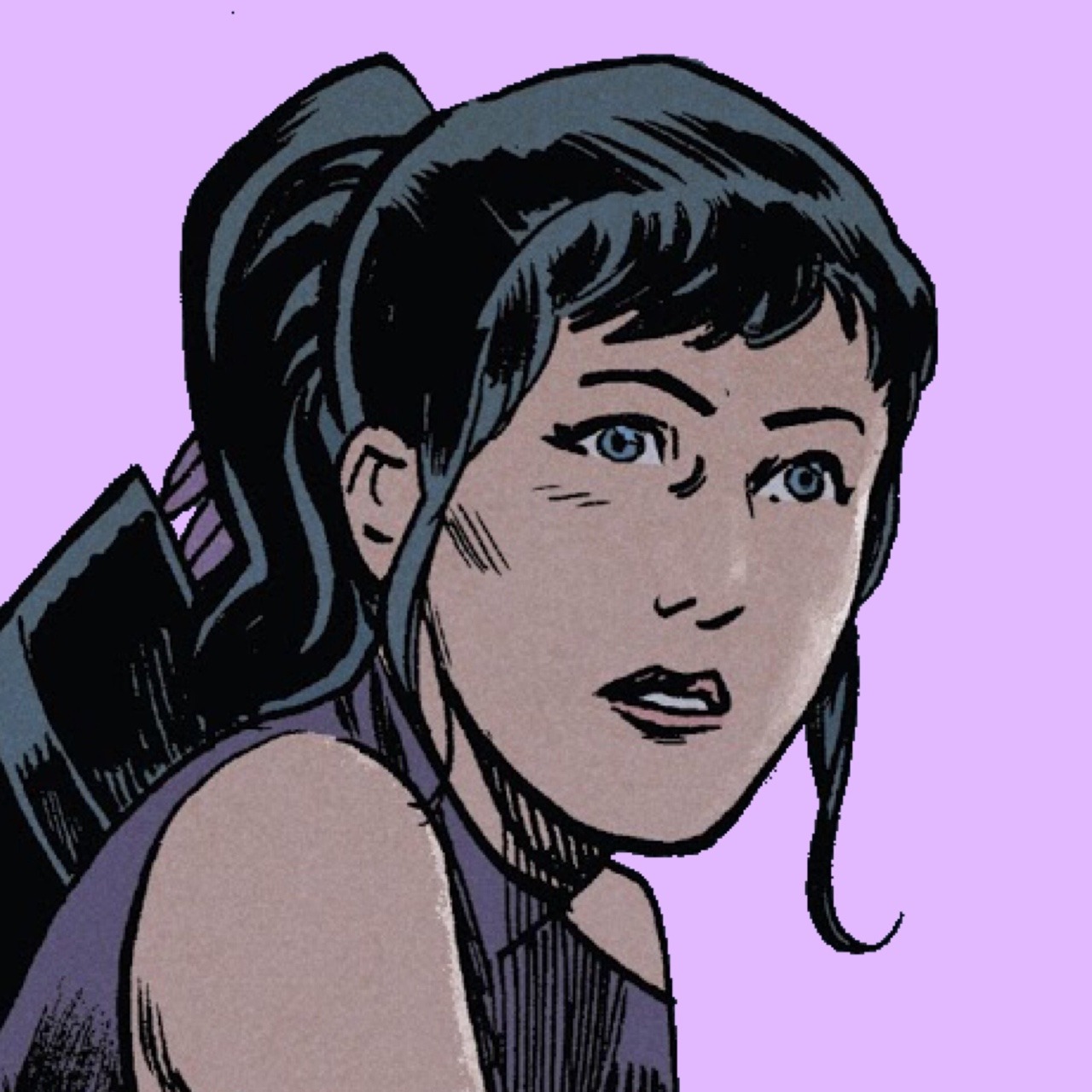Hey all.
I’ve been writing a novel recently - I’m only 2200 words in. It feels like so little and so much at the same time.
Until I graduated college, I loved writing. Reading, too. Then, it feels like my ADHD got much worse and I lost all the passion I had for both. I had about a year of really intense depression while trying to find my first job during COVID. I had basically written nothing for almost three years up until recently. I started, and did not finish, a short story, and am working now on this “novel”. The problem is that I love writing in the abstract, I love putting words together in interesting ways and telling a story. But I can’t stop looking at the word count and feeling hopeless. I can’t stop feeling like there’s no point to any of it because my writing is shit. I feel like all of my passion has just left and I don’t know how to get it back, but I desperately want it back.
This isn’t a question, really, despite the title. I guess I needed to vent and know if I’m not alone in having experienced this.
All a first draft has to do is exist! I’ve experienced this too and you just have to keep going. Honestly, just give yourself permission to be bad! You’re not alone in feeling this way. I used to be so paralyzed by this that I couldn’t even get any words down, so first off, you should congratulate yourself on that 2200 words because that is an accomplishment!
If you imagine the well of your creativity like a dammed up stream, and you’re only just unblocking it, you’re going to have to let the debris and trash that built up flow through before you get to the clean water farther up the stream. Just keep the words going! If you hear that voice saying “this is shit” just ask back “yeah? And so what if it is?”
Would you rather have a bad novel that you can edit and turn into something better, or a blank page and a heart full of regret? I don’t believe your writing is shit, for the record, but almost no one just produces a perfect novel with no need for edits or changes on their first go. Just keep at it. Passion is something you can cultivate, it’s not gone, you just have to create an environment where it’s allowed to flourish.
Thank you for the advice! I think part of the problem is that I’ve never been able to just write. I always take a ton of time for each sentence. I know that’s something that I need to get over because it slows me down immensely.
Oh, ouch. yes. Write first, edit later.
Following up on my much longer post, I use a combo of ProWritingAid (which works with Libre Office) and Grammarly (as a Chrome plugin) to double-check things, but I also ignore a lot of their suggestions. But at the very least, it means I do not have to worry about missing minor grammar issues and typos (those are the suggestions I accept).
Dithering is the bane of writers. Though at least when I dither, I try and side-track to other places like here instead of staring at the page.
I’m in a similar boat. I found that concentrating on short stories was really helpful to build my confidence in my prose. I am currently bouncing between two novel ideas, with maybe 15k words on one, and about 10k on the other. I ended up not liking my first attempt (the longer) and plan to go back to the table and do world building again before making another attempt. On the second, I am slowly writing it out, but it is painstaking work.
While I haven’t solved this problem, I think what you and I need to do is the same: just keep writing. Don’t edit as you go. The more you build it out, the more you’ll feel connected to your characters, and the more you’ll want to explore them in other situations. Get your ideas on the page, and eventually you’ll be able to figure out what you specifically don’t like. And then you can start again or start a new project with that in mind.
Wishing you the best!
Thank you! This is really helpful to hear. Concentrating on short stories might really be the way to go at the moment; the novel I’m working on right now is fantasy and I could definitely explore some scenes with my main character outside of the scope of that in order to practice.
I love doing this myself with short 1-2k word scenes to help develop the character and my writing at the same time. When writing a long piece in chronological order it’s easy to get stuck at a section and the continual revising is tedious when you just want to write. So just skip over to a part that you want to explore and you’ll often find it’s much easier to get started. Later on when you actually write that section of your novel you can go back to your old short story and use that scene as inspiration.
As the previous commenter mentioned writing these short stories also gives you a chance to practice your craft in a more controlled setting. I find myself writing much quicker when I’m not constrained by the subtleties and pacing required for a full novel, and you can adapt the story to match your writing rather than the other way around.
I definitely find the “scene” or “vignette” to be much easier to focus on and do effectively. On longer works it’s so easy to get bogged down in the details and the bigger picture setups, so doing the short stuff is good practice for just blasting words onto the page. I saw your other comment where you mention that you sometimes spend too much time on single sentences, and I am definitely prone to doing the same. I figure that if I can get comfortable with writing the shorter stuff, it’ll help me stay focused on the longer.
I am currently writing a serial story where I am publishing three, 2K-ish word chapters every two weeks. This means I am writing more than that as I am building a backlog and I am also writing secondary material (Patreon-only stuff).
What keeps me writing is in part the style of story I am writing. I have a very character-driven story and have only a loose outline. To write the next thing, I just have to ask myself ‘what happens next’ and keep building.
And these characters and this world live inside my head. When I’m doing things like washing the dishes or other physically engaging but mentally low-effort activities, my head is playing through either the scenario I am on or possible future scenarios with these characters. coughs er, I may also have ADHD.
For additional motivation, I talk about the story with my wife (who is also my editor, though she is far behind what I have actually published for editing. Thankfully it’s a web publish on Royal Road, so I can go back and edit freely), and I get feedback, and she wants to read it, so I have encouragement there.
I get further encouragement from my readers (almost 900 followers), and gods the dopamine hits from ‘the numbers go up’ mixed with ‘they really like me’ is great.
But I also have a lot of spare time at the moment, and writing has become my primary ‘productive’ activity. I wouldn’t be able to keep up this schedule otherwise.
I don’t know if this will help you, but if you want to try, come on over to Royal Road, maybe even give my story a try, and definitely find a bunch of others you like. Get comfortable in the community, comment, and offer edit suggestions (most of the stories here have not been professionally edited yet, and the website is literally built to make offering edit suggestions easy: just highlight text and you get a button that pops up saying “suggest edit”).
When you think you are ready, pull the ideas you have together to give you a starting point with the characters you want to write about in the scenario you want to start them off in. And then just start writing.
Write the story that you want to read, but that no one else is writing. Don’t write what other people want to read, write what you want to read.
Get a few chapters ahead (try for 1,500 words at a minimum per chapter, I recommend a separate file for each chapter), then begin publishing at a rate you can keep up with based on your speed so far. And if you need help getting set up, well, there are forums there too who are willing to help.
Fair warning though: If it’s not fantasy, stories are not going to do well. My own suffers a bit from not being a LitRPG or Cultivation novel, two of the most popular types there, but it is at least fantasy.
If some of the challenge here is getting words on the page, a lot of the strategies many people employ for NaNoWriMo (National Novel Writing Month – a self-imposed challenge to write a 50k+ word novel in November) usually works out somewhat well:
- It is ok to take a break, or have an unproductive day. For NaNoWriMo, the idea is to average about 1667~ words a day, but you don’t actually have to do that much everyday. Sometimes you have productive days, sometimes you have less. That’s ok.
- You are always “writing” even if you’re not actually putting words on the page. The creative process that comes with thinking about characters, planning, imagining settings, world building, plot considerations, conflict resolutions, and so on are all “writing” even if at the end of the day you wrote one sentence into your actual novel then took it out 5 hours later because you weren’t happy with it. If you do a lot of planning and note-taking, you might be surprised at how many words are actually in that big bulk of stuff.
- Less “should” mentality. It’s not a bad idea to frame away from thinking of it as “I should be writing”, or “my writing should be good/better”.
- Less use of the backspace button. Dump words on page, fix later (this 100% takes getting used to).
- Oftentimes, a novel can be broken down into scenes, stitched together with entry and exit transitions, chained together to flow from one scene to the next. A “scene” isn’t strictly a chapter per se (but a chapter can be a whole scene in and of itself), but rather a set of interactions between characters, setting, plot, and conflict (among other things). In the immediate term, you could consider changing your perspective from “writing a novel” to “writing a scene in the novel”, and as you build up scenes over time you start getting something that feels like a longer piece of work even if all you’ve done is write a few 500-1500 “in the moment” short stories chained together.
Additionally, the traditional novel isn’t really the only kind of writing you can do. Novellas, short stories, poems, vignettes, scripts, even the Japanese Light Novel structure are all ways to write without necessarily feeling like one is forced into putting together this massive (or semi-massive) epic.
Keep on writing that first draft, even if it turns out bad or terribly disjointed — I’m 35000 words into my own novel and it sucks majorly and is totally out of order, but that’s for me to fix later in the next drafts




